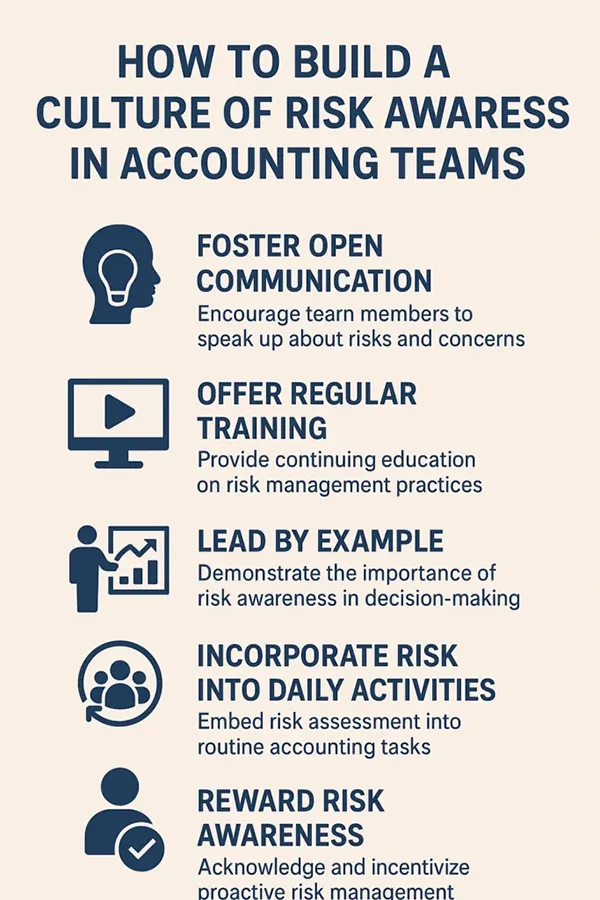Risk management in accounting is a framework to identify and assess threats to a business.
Remember when day-to-day finance tasks meant dealing with spreadsheets, paper trails, manual data entries and a receive approach to the work. Well, the times have changed and the financial world is now more evolved than ever. And while this modernisation of accounting operations is hidden from none, the fact remains that accounting teams these days face more risks than ever. Fraud, data breaches, reporting mistakes, and compliance failure reports often make headlines.
According to the Association of Certified Fraud Examiners (ACFE) reports, every year, 5% of the revenue of organizations, totalling $5 trillion globally, goes down the drain due to poor risk management.
This is where Accounting Risk Management 2.0 comes to the rescue. This proactive approach is a few steps ahead of the traditional accounting methods, and is much more advanced and tech-integrated. Want to learn how it actually works and how enterprise risk management software helps create a safer corner in the financial world? Continue reading!
KEY TAKEAWAYS
- Digitalization of accounting operations is giving rise to numerous cyber threats.
- Compliance helps create a strong foundational risk shield.
- Tech acts as the new guardrail for financial accuracy, automating tasks and reducing human errors.
- Strong internal controls and well-trained employees can help strengthen financial integrity and build a culture of risk awareness.
- The future of accounting risk management will be brighter and follow a more proactive, automated, and predictive approach.
The Growing Risk Landscape in Modern Accounting
As the global market and the fintech industry become more digital, new problems make their way on their own. Yes, online transactions, automated systems, and cloud platforms have made things so much more convenient but at the same time, they have opened the door to numerous cyber threats and financial manipulation.
Let’s understand this with an example. Imagine an accounting firms handle all its transactions on a cloud-based system. One day, an employee makes a small formula mistake. Even though it was a minor error, it will not take long for it to multiply and impact hundreds of client records since these systems are connected to billing, reports, forecasting tools, and whatnot.
And this is not the only one; there are more problems, such as misconfigured user permissions, API integration failures, and cloud sync delay that corrupt the workflows.
Compliance: The Foundation of a Strong Risk Shield
Strict laws help financial organizations stay in the right lane, and hence, compliance is one of the most important parts of risk management. Failure to comply can result in hefty penalties, reputational damage and operational damage.
Which means that non-compliance with certain rules and regulations not only proves to be an expensive mistake for companies, but can also take a direct hit at their reputation in the market.
Technology as the New Guardrail for Financial Accuracy
Gone are the days when human errors were an everyday occurrence in financial institutions, because technology has taken over the matter and now acts as the new guardrail for financial accuracy. Here is how it helps:
- Automated tools are capable of flagging unusual entries, missing date, or suspicious patterns, in an instant.
- Artificial intelligence and machine learning can identify fraudulent activities by analyzing workflows closely.
- Many software, audit tools, and AI-driven risk systems make it easier to keep a track of all the activities and ensure accuracy.
Unlike human force, these innovations can manage huge volumes of data effectively and in a proactive manner, proving to be immensely beneficial for organizations.
Strengthening Financial Integrity Through Internal Controls
Internal controls are the backbone of financial integrity. This includes tasks like delegating duties between team members, approving transactions through different levels, regular audits, and tracking changes in the financial records.
Having a strong command over these helps reduce the chances of fraud, catch mistakes quickly, and ensure transparency. Also, Clients and stakeholders look for these factors to test the strong foundation of firms and to make sure that the organizations are worth their time and investments.
PRO TIP
Use the “Control Mapping” technique to spot gaps before they turn into major issues.
Safeguarding Client Data with Cyber-Resilient Practices
Organizations cannot compromise with client data as it is an essential asset for them, and the cybercriminals lurking behind screens are well aware of this fact. That is why, it is often targeted by attackers.
You can browse through the history and confirm the fact. The biggest of data breaches were focused on client data, be it the famous Yahoo breach that compromised more than 3 billion accounts or the LinkedIn breach, where 700 million users found their trust in the company broken.
To safeguard their clients’ credentials, organizations are now shifting to resilient practices like data encryption, multi-factor authentication, cloud networking, regular software updates, and real time monitoring for suspicious activities.
Building a Culture of Risk Awareness in Accounting Teams
Technology cannot do the job alone; human force remains equally important. After all, employees are another big asset for any company. Therefore, it is necessary to invest in them, train them and equip them with the required knowledge to build a culture of risk awareness.
Teams should understand the know-hows of the operations and also learn how to recognize red flags, follow protocols and prioritize integrity. The infographic below depicts the best practices for fostering a culture of risk awareness in teams:

The Future of Accounting Risk Management
Accounting risk management has evolved a lot in the past few years, thanks to technology. But, the best is yet to come. In the future, we can expect things to be more predictive, automated, and proactive.
With the changing landscape, one thing is certain that the companies that invest in strong systems, skilled teams and digital resilience will surely stay one step ahead of threats, maintain long-term financial trust and thrive in the competitive market.
- The Growing Risk Landscape in Modern Accounting
- Compliance: The Foundation of a Strong Risk Shield
- Technology as the New Guardrail for Financial Accuracy
- Strengthening Financial Integrity Through Internal Controls
- Safeguarding Client Data with Cyber-Resilient Practices
- Building a Culture of Risk Awareness in Accounting Teams
- The Future of Accounting Risk Management





